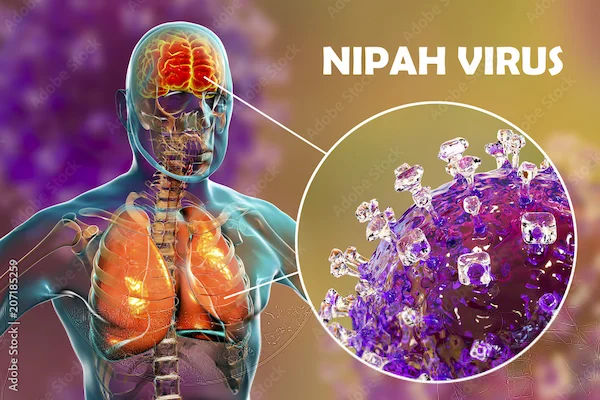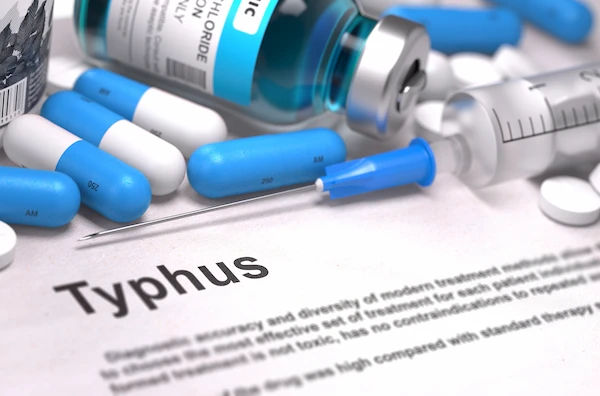West Nile Virus Overview and Symptoms
Learn about West Nile Virus, how it spreads, its common symptoms, and who is at risk. Understand the signs to watch for and when to seek medical attention for early diagnosis and care.


Introduction
The West Nile Virus (WNV) is a mosquito-borne illness that can affect humans and animals. While most people infected with the virus experience mild or no symptoms, some may develop severe complications. Understanding this virus, its symptoms, and preventive measures can help you stay safe.
What Is West Nile Virus?
West Nile Virus is primarily spread through the bite of an infected mosquito. Mosquitoes become carriers after feeding on infected birds. The virus was first identified in Uganda in 1937 and has since spread to many parts of the world, including India, the United States, Europe, and Africa.
Most people (about 80%) infected with WNV do not show any symptoms. However, in rare cases, the virus can lead to serious neurological conditions like encephalitis (brain inflammation) or meningitis (inflammation of the brain and spinal cord membranes).\
Consult an Infectious Disease Specialist for the best advice
Symptoms of West Nile Virus
Symptoms of WNV can vary from mild to severe. They usually appear 3 to 14 days after being bitten by an infected mosquito.
1. Mild Symptoms (West Nile Fever)
About 20% of infected people develop mild symptoms, including:
- Fever
- Headache
- Body aches
- Fatigue
- Skin rash (occasionally)
- Swollen lymph glands
- Nausea or vomiting
These symptoms typically last for a few days to weeks and go away on their own.
2. Severe Symptoms (Neuroinvasive Disease)
In less than 1% of cases, the virus affects the nervous system, leading to serious complications such as:
- High fever
- Severe headache
- Stiff neck
- Confusion or disorientation
- Muscle weakness or paralysis
- Tremors or seizures
- Coma
Severe cases require immediate medical attention, as they can be life-threatening.
Who Is at Higher Risk?
While anyone can get infected, some people are more likely to develop severe symptoms:
- Adults over 60 years
- People with weakened immune systems (e.g., cancer patients, organ transplant recipients)
- Those with chronic medical conditions (e.g., diabetes, hypertension)
How Does West Nile Virus Spread?
The primary mode of transmission is through mosquito bites. However, in rare cases, WNV can also spread through:
- Blood transfusions or organ transplants (though screening has reduced this risk)
- Mother-to-baby transmission during pregnancy, delivery, or breastfeeding (very rare)
- Laboratory exposure (healthcare workers handling infected samples)
Note: The virus does not spread through casual contact like touching, coughing, or sneezing.
Diagnosis and Treatment
Early detection and proper care are crucial in managing the West Nile Virus effectively. Here's how it is typically diagnosed and treated:
Diagnosis
If you experience symptoms after a mosquito bite, consult a doctor. Diagnosis may involve:
- Blood tests (to detect antibodies against WNV)
- Spinal tap (lumbar puncture) (to check for brain/spinal cord infections)
- MRI or CT scans (to assess neurological complications)
Treatment
There is no specific antiviral treatment for WNV. Mild cases can be managed with:
- Rest
- Hydration
- Over-the-counter pain relievers (like acetaminophen or ibuprofen)
Severe cases may require hospitalization for supportive care, such as:
- Intravenous (IV) fluids
- Breathing support (ventilator)
- Prevention of secondary infections
Get Your Health Assessed
Prevention Tips
Since there is no vaccine for humans, the best way to avoid WNV is mosquito control:
1. Avoid Mosquito Bites
- Use EPA-approved insect repellents (containing DEET, picaridin, or oil of lemon eucalyptus).
- Wear long-sleeved shirts and pants when outdoors.
- Stay indoors during dawn and dusk (peak mosquito activity times).
- Use mosquito nets while sleeping, especially in high-risk areas.
2. Eliminate Mosquito Breeding Sites
Mosquitoes breed in standing water. Reduce their breeding by:
- Emptying flower pots, buckets, and birdbaths regularly.
- Covering water storage containers.
- Keeping gutters clean to avoid water clogging.
- Using larvicides in stagnant water if necessary.
3. Community Efforts
- Support local mosquito control programs.
- Report stagnant water bodies to authorities.
When to See a Doctor?
Seek immediate medical help if you experience:
- High fever with severe headache
- Stiff neck or confusion
- Sudden muscle weakness
- Seizures or difficulty breathing
Early medical intervention can prevent complications.
Final Thoughts
While West Nile Virus is usually mild, it can sometimes lead to serious health issues. By taking preventive measures
such as using mosquito repellent and eliminating breeding sites, you can significantly reduce your risk.
Consult an Infectious Disease Specialist for the best advice
Consult an Infectious Disease Specialist for the best advice

Dr Chilukuri Venkata Reddy
General Physician
4 Years • MBBS
Bengaluru
PRESTIGE SHANTHINIKETAN - SOCIETY CLINIC, Bengaluru

Dr Venkata Naga Sai Tribhushan Rambhatla
General Physician
3 Years • MBBS
Bengaluru
PRESTIGE SHANTHINIKETAN - SOCIETY CLINIC, Bengaluru

Dr. Kriti Bhat
Dermatologist
5 Years • MBBS, MD ( Dermatology, Venerology, Leprosy ) from AIIMS JODHPUR
Bengaluru
Apollo Medical Center, Marathahalli, Bengaluru

Dr. Dayanashre N
General Physician
3 Years • MBBS
Bengaluru
PRESTIGE SHANTHINIKETAN - SOCIETY CLINIC, Bengaluru

Dr. Sushith C
General Physician
2 Years • MBBS
Bengaluru
PRESTIGE SHANTHINIKETAN - SOCIETY CLINIC, Bengaluru
Consult an Infectious Disease Specialist for the best advice

Dr Chilukuri Venkata Reddy
General Physician
4 Years • MBBS
Bengaluru
PRESTIGE SHANTHINIKETAN - SOCIETY CLINIC, Bengaluru

Dr Venkata Naga Sai Tribhushan Rambhatla
General Physician
3 Years • MBBS
Bengaluru
PRESTIGE SHANTHINIKETAN - SOCIETY CLINIC, Bengaluru

Dr. Kriti Bhat
Dermatologist
5 Years • MBBS, MD ( Dermatology, Venerology, Leprosy ) from AIIMS JODHPUR
Bengaluru
Apollo Medical Center, Marathahalli, Bengaluru

Dr. Dayanashre N
General Physician
3 Years • MBBS
Bengaluru
PRESTIGE SHANTHINIKETAN - SOCIETY CLINIC, Bengaluru

Dr. Sushith C
General Physician
2 Years • MBBS
Bengaluru
PRESTIGE SHANTHINIKETAN - SOCIETY CLINIC, Bengaluru




